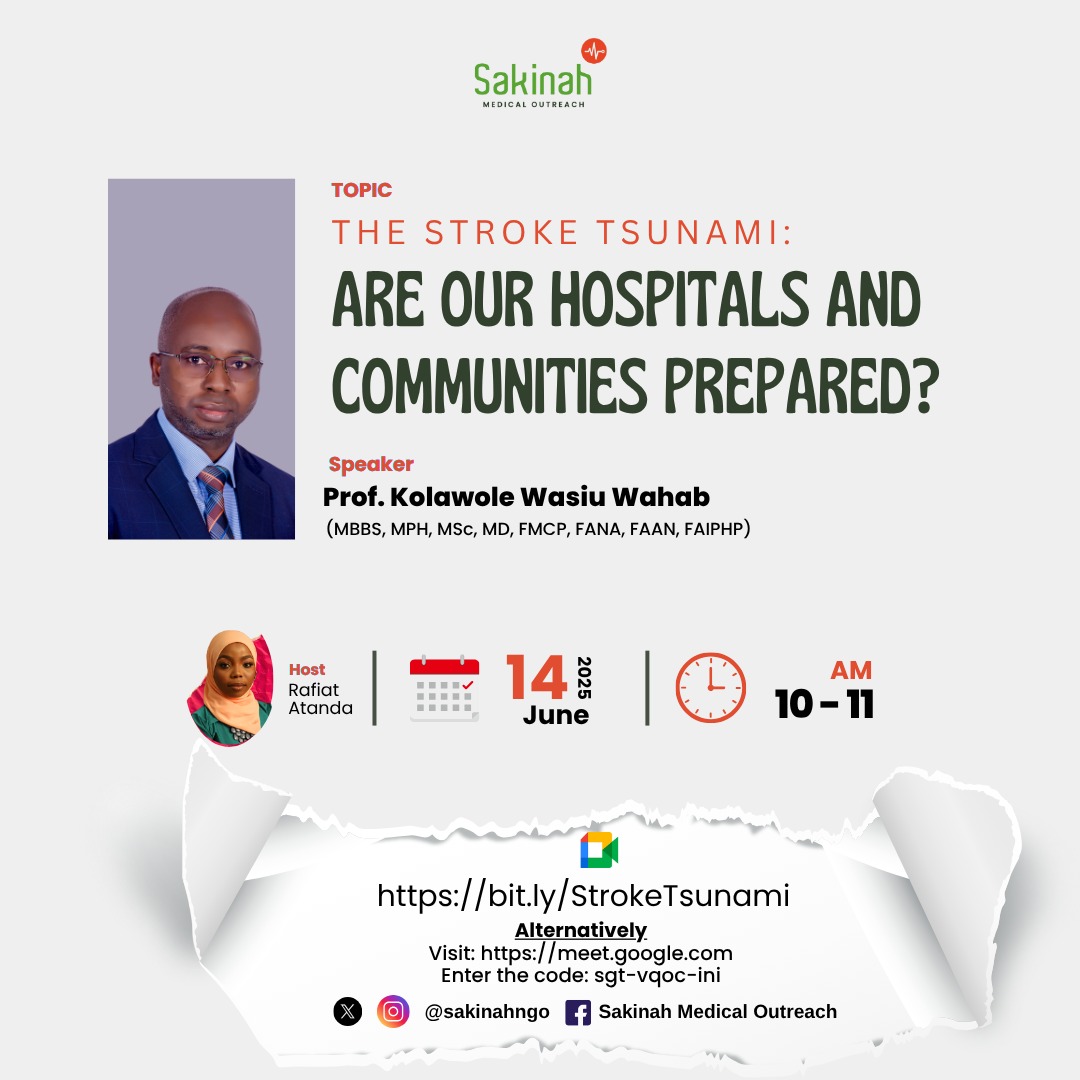Among non-communicable diseases (NCDs), stroke remains the second leading cause of death and the third leading cause of death and disability combined (as measured by Disability-Adjusted Life Years—DALYs) globally.
In Nigeria, stroke is the second leading cause of mortality, with a prevalence of 26 per 100,000 person-years. These alarming statistics highlight a growing and silent crisis — one that calls for immediate public health attention and systemic readiness.
⚠ Understanding Stroke and Its Risk Factors
A stroke occurs when the blood supply to part of the brain is interrupted or reduced, preventing brain tissue from getting oxygen and nutrients. Within minutes, brain cells begin to die.
Risk factors for stroke can be classified into modifiable and non-modifiable:
Modifiable risks: high blood pressure (the most significant), high cholesterol, diabetes, obesity, smoking, alcohol consumption, unhealthy diet, physical inactivity, and stress.
Non-modifiable risks: age, gender, race (people of African descent often experience strokes at a younger age), and family history.
Prevention is Possible
Many strokes can be prevented with lifestyle changes and early interventions:
Eat a healthy diet rich in vegetables and fruits and low in salt and saturated fats.
Exercise regularly—at least 30 minutes of moderate-intensity aerobic activity, five days a week.
Monitor health indicators like blood pressure, blood sugar, and cholesterol regularly.
Avoid tobacco and alcohol consumption.
Manage stress through rest, support systems, and mindfulness.
But Are We Really Prepared?
Despite growing awareness and medical advances, significant gaps remain in:
Stroke awareness in communities, especially rural areas.
Early recognition of symptoms and the urgency to seek help.
Emergency response and access to well-equipped hospitals with trained personnel.
Availability of diagnostic tools like CT scans and access to specialist care.
Most communities and health facilities in Nigeria remain under-resourced, both in stroke-specific care and general emergency preparedness. This gap puts lives at risk every single day.
Join the Conversation—Sakinah’s Quarterly Health Talk
To further raise awareness and spark action, Sakinah Medical Outreach is inviting the public to join our upcoming Quarterly Health Talk themed:
“The Stroke Tsunami: Are Our Hospitals and Communities Prepared?”
Date: Saturday, June 14, 2025
Time: 10:00 AM
Google Meet: https://bit.ly/StrokeTsunami
Alternatively,
Visit: https://meet.google.com
Enter the code: sgt-vqoc-ini
Our expert guest speaker will break down
– What stroke looks like in Nigeria today
– How to recognize and respond to symptoms FAST
– What communities and individuals can do to reduce risk
– The realities of hospital preparedness and what must change
Don’t miss this eye-opening session. It could save your life or someone else’s.
✅ Click here to register: https://bit.ly/StrokeTsunami
Follow us for updates: @sakinahngo
Let’s Not Wait for the Tsunami to Hit
Every second counts when it comes to stroke. The more we know, the more lives we can save — together.
If you believe in spreading awareness and improving access to health care, partner with Sakinah today through donations, volunteering, or by simply sharing this information.
Together, we can build communities that are informed, prepared, and healthier.

